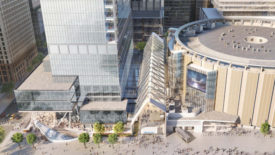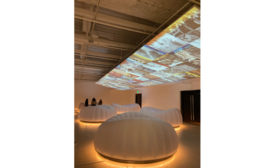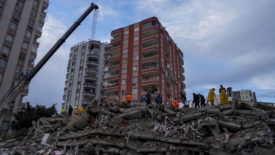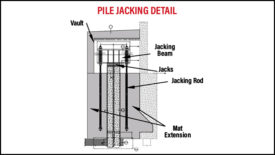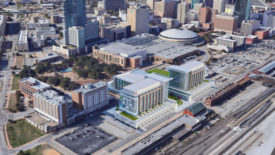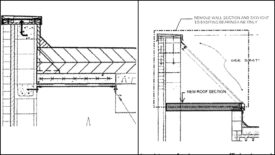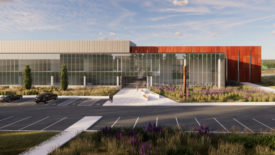- NEWS
- PROJECTS
- BUSINESS
- TALENT
- REGIONS
- TECH
- PRODUCTS
- IDEAS
- COSTS
- LISTS
- INFOCENTERS
- EVENTS
- Award of Excellence
- Best of the Best Project Awards
- FutureTech
- Groundbreaking Women in Construction EAST
- Groundbreaking Women in Construction WEST
- Global Best Projects Awards
- LA Infrastructure Forum
- NY/NJ Infrastructure Forum
- Regional Best Projects
- Seattle Infrastructure Forum
- Top 25 Newsmakers
- Upcoming Events
- Webinars
- MORE
Buildings
Natural Disasters
Uneven Code Enforcement Seen in Earthquake-Damaged Buildings in Turkey
Death toll is expected to rise and crews work to restore critical infrastructure
Read More
Buildings
Museum Exhibit Presents Bold Concepts for Resilient Cities
Exhibition is Culmination of International Four-Year Effort
Read More
In Earthquakes' Aftermath in Turkey and Syria, Evaluating Buildings and a Search for Survivors
Damage across southern Turkey and northern Syria is still being catalogued
Read More
The latest news and information
#1 Source for Construction News, Data, Rankings, Analysis, and Commentary
JOIN ENR UNLIMITEDCopyright ©2025. All Rights Reserved BNP Media.
Design, CMS, Hosting & Web Development :: ePublishing
